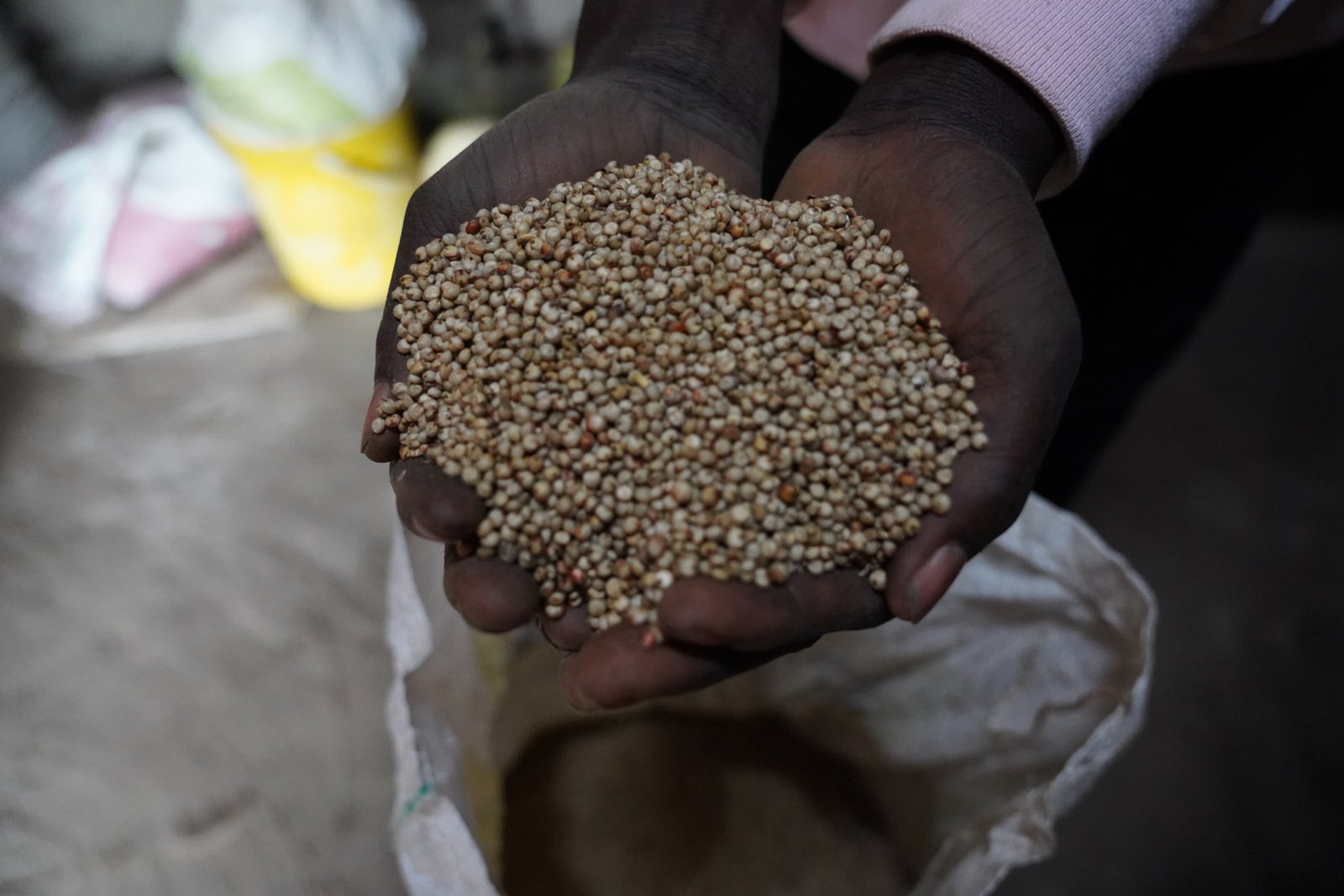By Pretty Chavango
Small grain farmers in Gokwe have implored the government to ensure that markets for small grains are decentralised and competitive as a way of encouraging improved production of drought-resistant variety crops.
Zimbabwe like many other countries in the world has not been spared from the effects of climate change, which have seen farmers from across the country recording back-to-back losses.
As the 2023/2024 farming season is around the corner, there is also the uncertainty that there will be positive yields in the country due to predicted below-normal rainfall, and high temperatures being experienced.
In Gokwe, farmers are slowly migrating to small grain varieties with support from AGRITEX and the Agriculture Business Centre(ABC) a non-governmental organisation working in the area.
Drought-resistant crops such as small grains are seen as one of the many ways of adapting to climate change and its effects, on farmers.
Some of the small grain varieties being preferred include sorghum, pearl, and finger millet which require less rainfall and can withstand high temperatures.
Despite the support from AGRITEX and ABC towards small grains, the farmers are however bemoaning the lack of competitive markets that pay better prices for their produce, which they say is demotivating their efforts.
A farmer in Gokwe Phillimon Mahlalela indicated that farmers had warmed up to the idea of small grains and that about 6000 were even contracted by ABC to produce cow peas and chilies, but the contractor is now failing to take up the product at a competitive price.
“Currently ABC is failing to source a good market as they are also selling them to the Grain Marketing Board (GMB). Farmers however as entrepreneurs are now stocking their grain to sell later instead of at harvesting time.
‘’So far this year after the training we had with ABC the number has gone up compared to the previous year. Across Gokwe Sesame about 2000 farmers have dry-planted mhunga, while about 1500 have dry-planted zviyo. In Gokwe Sengwa 874 have also planted Zviyo.
“ABC is buying Mhunga at US$5 per bucket, but local sellers are paying a better price of US$6 per tin. We are even aggregating and then sending the small grains to Harare and Bulawayo. While value addition is one of the most paying options, accessibility to markets is the challenge.”
However, in an interview, the National Assembly representative for Gokwe Mapfungautsi Constituency, Tawanda Karikoga indicated that markets for small grains are there in Gokwe, adding that GMB is the biggest buyer in the country.
“The rains expected this season are below average to average rains, the government through Pfumvudza is encouraging and supporting farmers to migrate to small grains.
‘’Grain Marketing Board is the biggest buyer of small grains. Most of the farmers migrating from traditional crops to small grains are part of Pfumvudza beneficiaries,’’ he said.
Farmers from different parts of the country are resisting moving to small grains due to a lack of competitive markets as well as the low uptake of small grains compared to sadza from maize by locals.
“It will take a long time to wean people from maize, we have had it since generations past and although some people enjoy sadza from other grain varieties the market is still very little,” said Tirevei Chegama, a 57-year-old farmer in Gokwe South.
- TA

